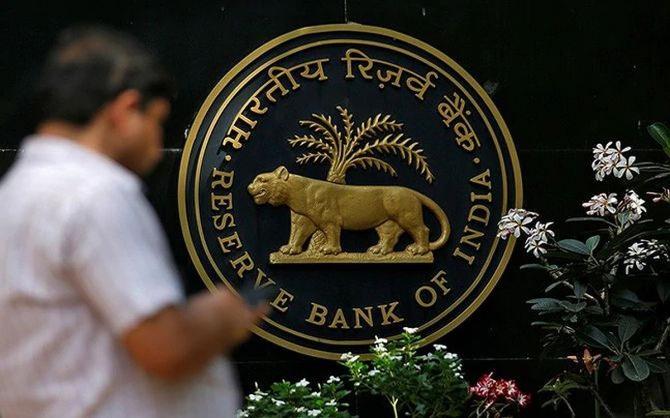The liquidity will move into deficit after advance tax payments and GST outflows. It will rebound in October because of government spending.

After remaining in surplus for over two months, banking system liquidity is expected to shift into deficit mode this week due to advance tax payments and goods and services tax (GST) outflows, said market participants.
Surplus liquidity in the banking system stood at Rs 1.96 trillion on Thursday, according to the latest data by the Reserve Bank of India (RBI).
"The liquidity will move into deficit after advance tax payments, and we also have GST outflows. It will rebound in October because of government spending," said Madan Sabnavis, chief economist at Bank of Baroda.
In August, liquidity in the system remained in surplus at Rs 1.46-2.86 trillion. This prompted RBI to conduct multiple variable-rate reverse repo auctions to manage the surplus.
On August 4, the liquidity improved to a year high of Rs 2.77 trillion, on the back of government spending.
Bond market participants said the fall in liquidity might not have a major effect on short-term bond yields. This is because market sentiment has been upbeat since the supply cut in treasury bills for September.
The RBI had cancelled the last two auctions of treasury bills in the current month.
"The market doesn't see liquidity as an issue right now. After the cancellation of treasury bill auctions, short-term bonds are in favour," said a dealer at a State-owned bank.
"The RBI has been active from both sides. It will continue with its usual operations of infusing and withdrawing liquidity whenever required," he added.
Moreover, traders eye the quantum of rate cut by the US Federal Reserve in the upcoming meeting for further cues, said dealers.
Average systemic liquidity surplus in August stood at Rs 1.49 trillion, up from Rs 1.02 trillion in July. Over the past 12 months, the average liquidity surplus was Rs 0.49 trillion.
"The RBI has kept enough cushion for the outflows," said Venkatakrishnan Srinivasan, founder and managing partner of Rockfort Fincap LLP.
"The rates won't be affected much because of the fall in liquidity. The RBI does not seem comfortable with the surplus liquidity above Rs 1 trillion," he added.
Since August, the weighted average money market rate has been hovering in a major way under the repo rate, reflecting the impact of surplus liquidity.
The repo rate currently stands at 6.5 per cent. The weighted average money market rate settled at 6.47 per cent on Friday.
"Liquidity in the banking system remained in surplus for the second month in a row in August.
"Higher government spending pushed it towards a one-year high during the first half of the month.
"Accordingly, the weighted-average overnight money market rates briefly traded below the standing deposit facility (SDF) rate.
"Nonetheless, the RBI resorted to multiple VRRR auctions on almost all days of the month to mop up the excess liquidity.
"Eventually, August ended with the interbank weighted-average call rate (WACR) averaging at 6.52 per cent. This is close to the RBI's repo rate of 6.5 per cent," said a report by CRISIL.
Moreover, certificate of deposit (CD) issuances surged 22 per cent in August despite surplus liquidity, driven by sluggish deposit growth.
Market participants said as the liquidity moves into deficit mode in the near term, banks may rush to raise funds through short-term debt instruments.
"There was an increase in CD issuances in August to meet the mismatch between assets and liabilities. This is amid falling deposits.
"Additionally, sluggish deposit growth and shift in retail investments led to surge in CD issuances," the report said.
Total CD issuances stood at Rs 82.020 crore in August, against Rs 67,160 crore in July.
Feature Presentation: Ashish Narsale/Rediff.com












 © 2025
© 2025